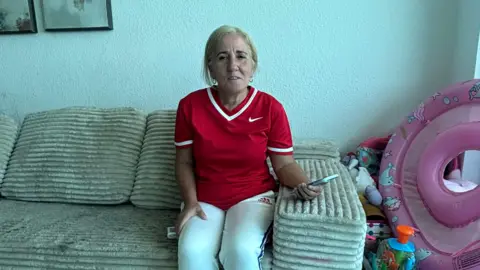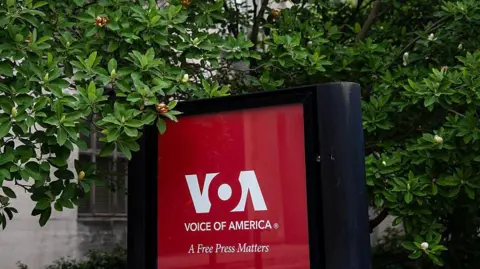The Trump administration has officially revoked Temporary Protected Status (TPS) for migrants from Honduras and Nicaragua, a significant policy shift that will impact tens of thousands living in the United States. This decision, made by the Department of Homeland Security, is set to take effect in approximately two months.
With an estimated 72,000 Hondurans and around 4,000 Nicaraguans previously shielded from deportation under this program, the move is part of President Trump's broader campaign to dismantle various protections for immigrants. TPS was initially established in response to natural disasters and conflicts, allowing individuals from affected countries to reside and work in the U.S. without fear of deportation.
The roots of TPS for these nations trace back to Hurricane Mitch, which devastated the region in 1998. As the years passed, many migrants adapted to life in the U.S., with about 21,000 Hondurans and 1,100 Nicaraguans securing permanent resident status.
Homeland Security Secretary Kristi Noem justified the elimination of TPS, asserting that Honduras has successfully recovered from the hurricane's aftermath. Notably, the agency noted that Honduras has become an attractive destination for tourism and real estate investment.
The administration's sweeping changes come alongside previous efforts to terminate TPS for other nations, including Haiti, Venezuela, and Afghanistan. Advocacy groups are alarmed by the withdrawal of TPS, predicting severe repercussions for those who have built lives in the U.S. and for the businesses and communities that depend on their contributions.
Legal battles have previously thwarted the administration's attempts to end TPS for other countries. For instance, federal judges have blocked terminations for Haitians and Venezuelans, citing concerns about the abrupt disruption to established lives and the legal authority of the government.
As the clock ticks down to the termination date, immigrant advocates remain distressed about the fate of families and workers, calling this latest policy change a disregard for the long-term stability that TPS has provided for vulnerable populations.
With an estimated 72,000 Hondurans and around 4,000 Nicaraguans previously shielded from deportation under this program, the move is part of President Trump's broader campaign to dismantle various protections for immigrants. TPS was initially established in response to natural disasters and conflicts, allowing individuals from affected countries to reside and work in the U.S. without fear of deportation.
The roots of TPS for these nations trace back to Hurricane Mitch, which devastated the region in 1998. As the years passed, many migrants adapted to life in the U.S., with about 21,000 Hondurans and 1,100 Nicaraguans securing permanent resident status.
Homeland Security Secretary Kristi Noem justified the elimination of TPS, asserting that Honduras has successfully recovered from the hurricane's aftermath. Notably, the agency noted that Honduras has become an attractive destination for tourism and real estate investment.
The administration's sweeping changes come alongside previous efforts to terminate TPS for other nations, including Haiti, Venezuela, and Afghanistan. Advocacy groups are alarmed by the withdrawal of TPS, predicting severe repercussions for those who have built lives in the U.S. and for the businesses and communities that depend on their contributions.
Legal battles have previously thwarted the administration's attempts to end TPS for other countries. For instance, federal judges have blocked terminations for Haitians and Venezuelans, citing concerns about the abrupt disruption to established lives and the legal authority of the government.
As the clock ticks down to the termination date, immigrant advocates remain distressed about the fate of families and workers, calling this latest policy change a disregard for the long-term stability that TPS has provided for vulnerable populations.




















